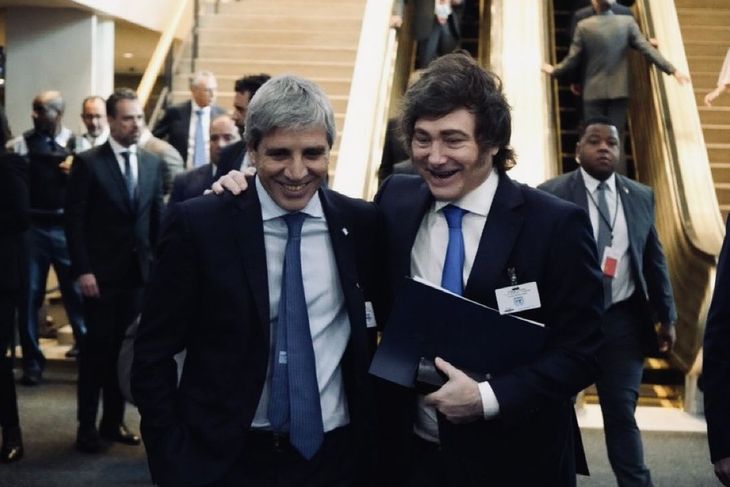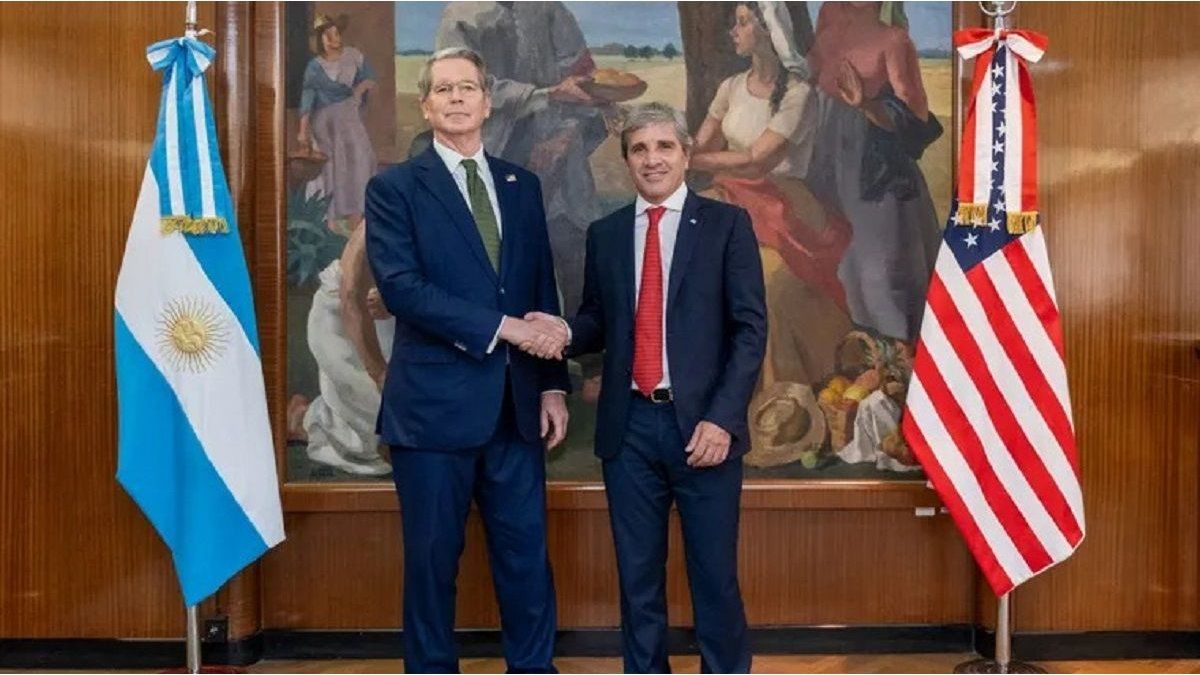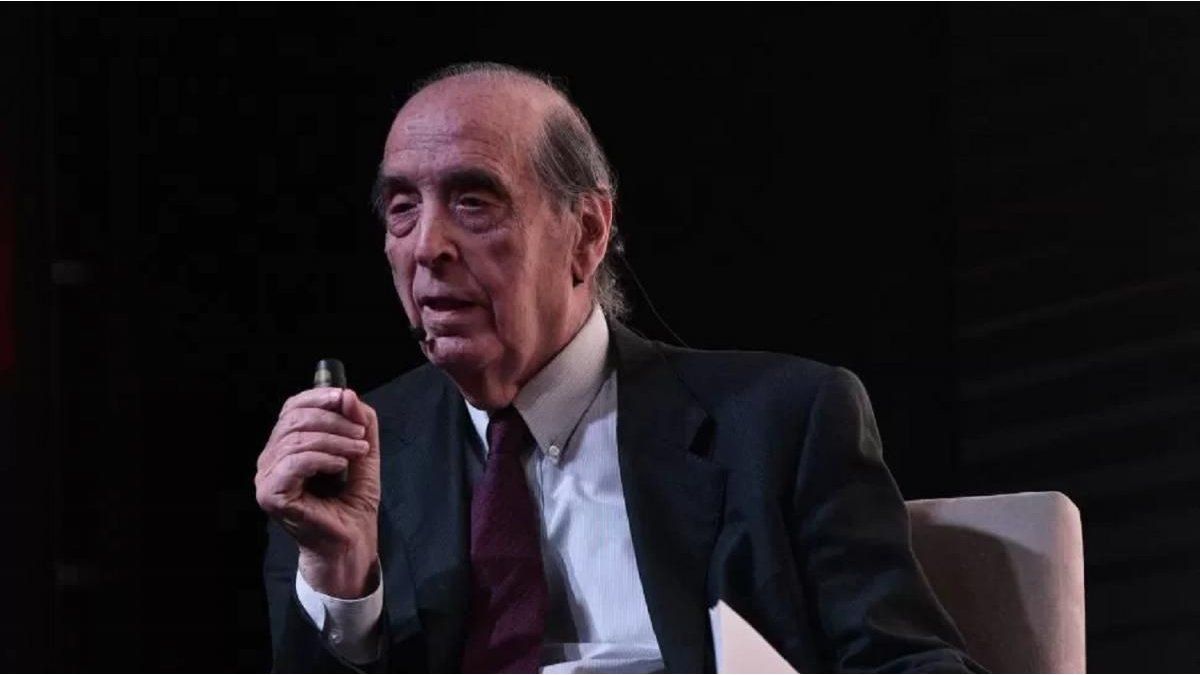According to the article titled “The United States is trying to open a gap between Argentina and China”the North American administration seeks “limit China’s access to the country’s resources, including critical minerals”, and in that context, Bessent would have spoken with Caputo in recent weeks to explore the possibility that Washington obtains a greater participation in the exploitation of Argentine uranium.
Negotiations and geopolitical strategy
The North American media pointed out that Trump administration officials work in a strategy to counter China’s influence in Latin America, encouraging governments in the region to close agreements with American companies in strategic sectors such as telecommunications, energy and infrastructure.
“Administration officials are trying to counter Beijing’s influence by encouraging Argentina’s leaders to reach agreements with American companies as a way to promote infrastructure projects and investments in key sectors such as telecommunications,” published The Wall Street Journal.
The newspaper recalled that the Argentina has maintained a swap with China for US$5 billion since 2023and that the Asian giant continues to be your second business partnerbehind Brazil.
Uranium.jpg
According to The Wall Street Journal, the Trump government would be interested in Argentine uranium.
Pixabay
Washington’s role and the vision of the Treasury
A spokesperson for United States Department of the Treasury declared to the media that “Stabilizing Argentina is ‘America first’”and added: “A strong and stable Argentina contributes to consolidating a prosperous Western Hemisphere, which is explicitly in the strategic interest of the United States.”.
Neither the Ministry of Economy nor the Argentine presidency responded to the newspaper’s queries about the negotiations.
According to The Wall Street Journalthe conversations between Caputo and Bessent took place “at a time when Argentina is increasingly turning to the United States for help.” The article highlighted that one of the main objectives of the meetings was push Milei administration to resist China’s growing influence within the country.
In this scenario, the media maintained that if China were displaced from Argentine projects, The United States would gain a strategic advantage in the middle of the trade tensions with Beijing due to the tariffs and restrictions applied on the export of rare earth.
Conditions, voltages and warnings
The report also indicated that the trump administration seeks “reduce China’s presence in Latin America”, pressuring the countries of the region to break economic ties with Beijing.
Although the chief of staff Guillermo Francos denied that Washington had conditioned the financial agreement on a move away from China, the WSJ He insisted that “Trump and his team made it clear to Milei that they expect him to limit relations with China”.
The newspaper cited sources close to the US Treasury who stated: “Treasury officials told senior officials in Argentina that they want to see U.S. companies as a primary source for Argentina’s telecommunications and Internet industry rather than companies linked to China.”.
Luis Caputo Javier Milei

The report also indicated that the Trump administration seeks to “reduce China’s presence in Latin America.”
China in the Argentine market
The article detailed the extensive Chinese presence in strategic Argentine sectors. According to the WSJ:
-
Telecom Argentina recently signed a loan of US$ 74 million with the Bank of China.
-
Huawei operates a 5G mobile network in the country.
-
Chinese state-owned enterprises finance the construction of a nuclear power plant with own technology.
-
Besides, Beijing seeks to expand its access to Argentine uranium to supply the growing energy demand of its industry.
According to a report of the National Atomic Energy Commission (CNEA)the Argentina has reserves estimated at 33,780 tons of uraniumwith a production cost of US$130 per kilogram.
However, the WSJ warned that the Argentine Constitution grants to the provinces ownership of mineral resourceswhich “limits any direct engagement of the national government with the Trump administration without the consent of the governors”.
Crossed statements and diplomatic reaction
In another section of the article, the WSJ quoted Bessent stating that “Argentina is committed to removing China from Argentina“, phrase that generated unrest at the Chinese embassy in Buenos Aireswhich publicly questioned those statements.
However, he himself Javier Milei clarified that his government does not plan to cut relations with Chinaand assured that the Trump administration never asked him to do it.
“Caputo and the president of the Central Bank, Santiago Bausilimet with Chinese officials during the annual meetings of the International Monetary Fund and the World Bank,” the newspaper concluded, highlighting that Buenos Aires maintains a delicate diplomatic balance between the two world powers.
Source: Ambito




